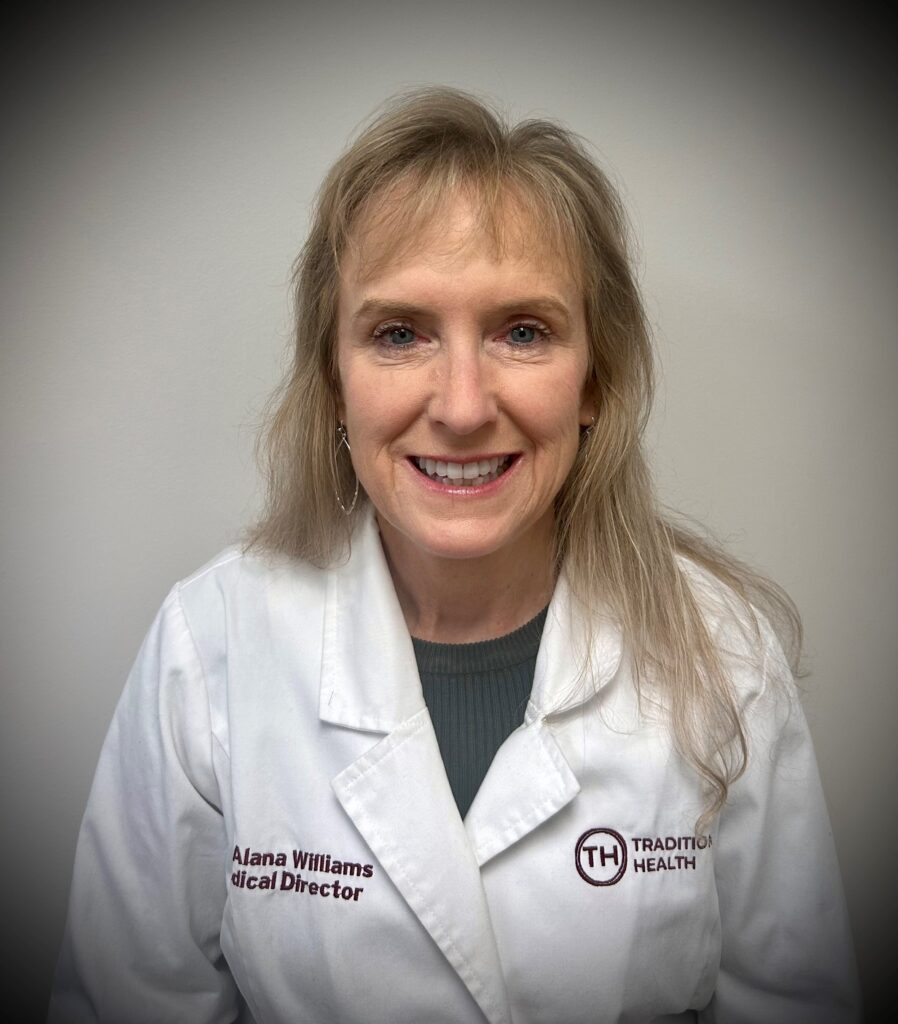

Traditions Health Medical Director Alana Williams, MD, can trace her desire to become a doctor to two distinct memories: One was helping to boil glass syringes for her insulin-dependent grandmother and learning she liked taking care of people. The other was hearing from a school guidance counselor that she shouldn’t become a physician because it wasn’t a “girl job.”
Instead of listening to the counselor, Dr. Williams dove into the idea of pursuing medicine as a career, taking on projects in school that helped her learn more about diabetes and its effects on the body.
“I thought it was a very interesting and challenging field,” she said.
A few years later, in medical school, Dr. Williams learned something else: She had an intense fear of death and dying — something known as thanatophobia.
Once again, instead of listening to the fear, Dr. Williams dove in, learning everything she could about the phobia and how she could overcome it.
“It was really overwhelming, to the point where it would wake me up at night,” she recalled, “but as I studied thanatophobia, I realized one of the ways to get over it was through exposure therapy, so I decided to immerse myself in it.”
Dr. Williams applied for medical residency in hospice and palliative care and was accepted.
“The experience helped my phobia, but what I really took away from it was the opportunity to meet all of these amazing people in hospice care,” she said. “I got to learn about their lives and how they were preparing to step into death and dying and the great unknown. I benefited from their bravery and learned so much from them.”
Dr. Williams quickly developed a passion for caring for people at the end of their lives. She’s worked as a doctor in hospice and palliative care ever since.
The role of hospice in health care
Now that she’s built a decades-long career around helping patients and their families navigate life-limiting conditions and illnesses, Dr. Williams wishes she could help people understand a few things about hospice — including its importance in health care.
“Many doctors who don’t specialize in this kind of work are uncomfortable having end-of-life conversations with patients,” she said. “We not only have a doctor, but a whole team (consisting of a medical director, nurse practitioner, social worker, chaplain, nurse, and volunteer coordinator) with this experience. So, it unburdens the healthcare system while also helping patients enjoy their quality of life instead of their quantity of life. It’s a win-win.”
Dr. Williams would also like to tell anyone within earshot that hospice doesn’t hasten death.
“It’s the most misunderstood part of hospice,” she said. “People perceive it as giving up on life, when we’re really focused on providing comfort and improving quality of life. We help our patients maintain their dignity and die with grace.”
Second, regarding the role of a hospice medical director, Dr. Williams wants to assure people that even if she’s unable to meet with a patient face to face, the team meets regularly to discuss every patient, to ensure they’re receiving the best possible care. In addition, the patient’s primary care physician can be part of the hospice care team if the patient chooses.
Finally, she’d like to spread the word that it’s possible to graduate from hospice care.
“If a patient no longer needs end-of-life care,” she said, “they no longer need us. They can go back to their primary doctor and get back to their lives.”
Gaining trust through caring
After 33 years of working in hospice and palliative care, Dr. Williams credits the trust she receives from her patients and their families with making her job meaningful.
“They don’t ask for an explanation of why I’m doing something or why I’ve ordered a particular plan of care — they just trust me,” she said, “I feel that, and I see it in their eyes. It’s indescribable to be able to interject myself into their lives and build that trust.”
Want to learn more about hospice care at Traditions Health? Submit a request care form.